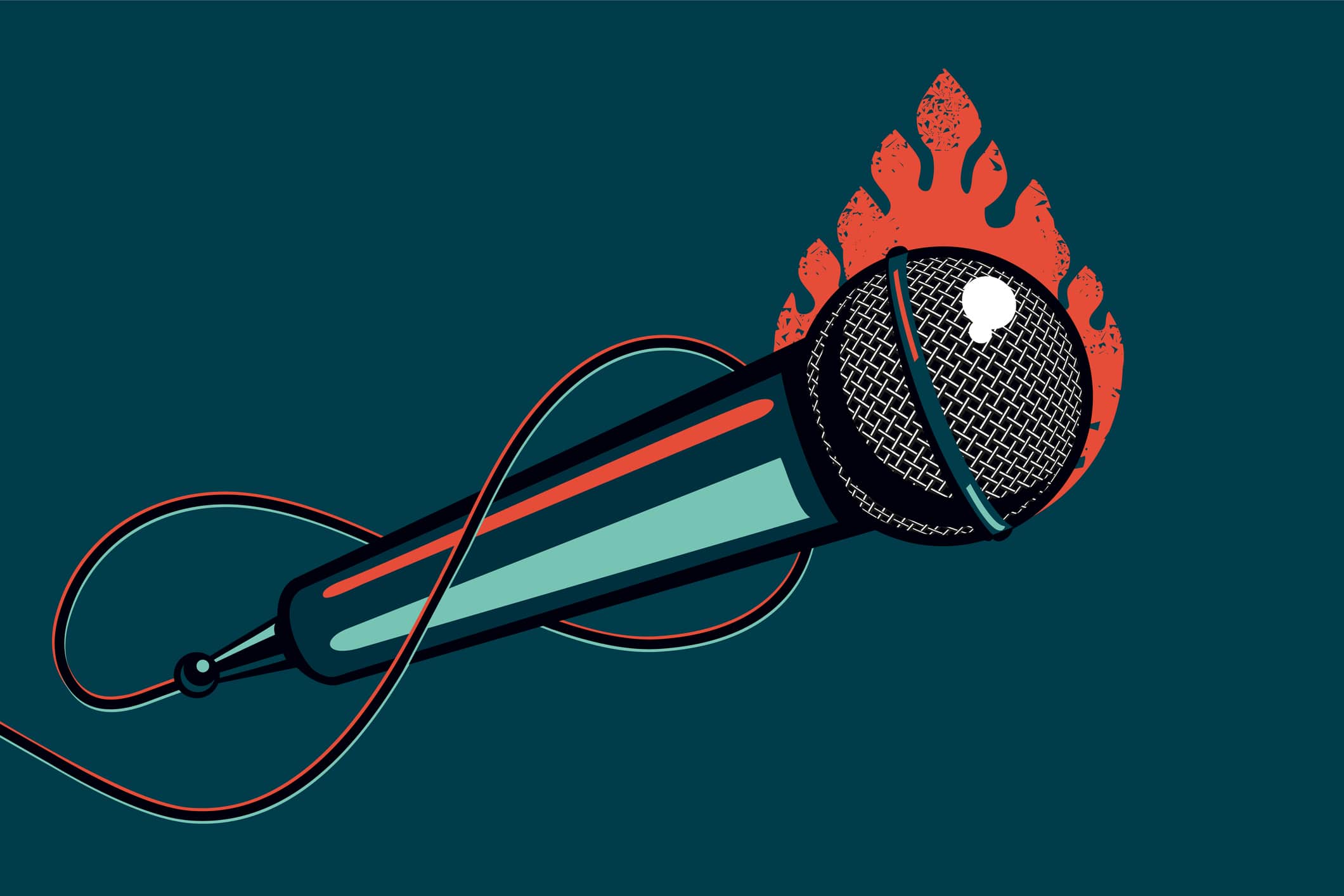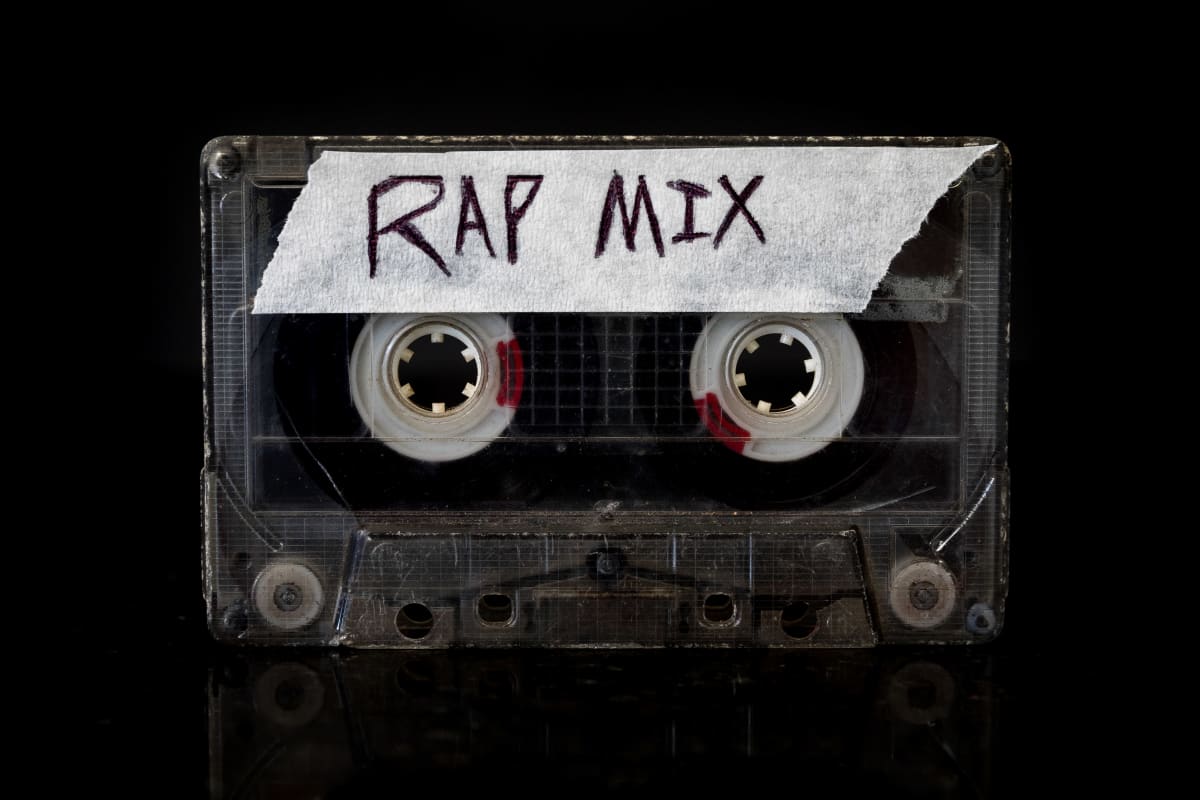
At one of Australia’s major annual educational research conferences last week, an esteemed professor, in response to a musical disruption of her keynote speech by a quickly-ejected protester, stated: “I hate rap.”
The offhand comment pricked the ears of the three of us – an Aboriginal woman, a Black American woman, and a British-Indian man, and all of us scholars interested in arts and/or marginal youth. What came next hit harder.
Large numbers of the majority white audience laughed and then applauded.
This sat uncomfortably for us, and for a number of other people of colour who shared their views online. It felt wildly out of place in a context that was dedicated to celebrating Aboriginal culture and pushing back against discrimination and racism.
Now, not everybody reading this likes rap music. That’s probably a given. There’s a common public perception that it’s “young person’s music”, and that it maybe doesn’t float the boat of older generations – perhaps they instead grew up on rock, reggae or mainstream pop, or they liked hip hop but aged out of it.
While oversimplified, it’s in some ways a pretty inoffensive take. But “I hate rap”, we would argue, speaks to a limited understanding of the cultural and political origins and purpose of the art form for groups minoritised by virtue of their “race”.
When confronted with rap music, it’s possible that the discomfort or fear experienced and expressed by some members of the audience could be attributed to complex cultural, historical and social dynamics, as rap is often mis-associated with danger rather than as an expression of identity, resistance, and subverting systemic injustices.
The path to greater civility
Thinking about this incident, we want to make the case, briefly, that academics, but also the public, can better-service the interest of social cohesion and meet calls for greater civility by always discussing differences in cultural expression of minoritised groups with respect and understanding.
To help that process, it’s worth reminding ourselves of the history, purpose and meaning of rap music, and also to consider its ongoing importance for Aboriginal and other people of colour.
Tracing its origins to the Bronx district in New York City in the 1970s, but built on the foundations of African and Caribbean oral traditions, rap music was a powerful cultural and artistic expression that sought to speak about social and political issues.
In particular, it was an avenue for ethnically minoritised communities to document their experiences of inner-city life and poverty.
A more concerted critique of power structures and the systemic causes of marginalisation and racial inequality became a feature of rap music in the early 1980s. Rap musicians of the late 1980s and early ’90s consolidated these themes, using the lyrics and poetry as social commentary for addressing police brutality, institutional racism, and the socioeconomic disparities affecting African-American communities.
While perhaps diluted over the coming decades, and at least in part becoming more mainstream, rap spoke – and continues to speak – to, with and for racially-marginalised communities in different parts of the world.

Transcending boundaries
The capacity of rap to articulate the struggles of marginalised communities transcends geographical and ethnic boundaries. This includes right here in Australia.
Sonically and politically, rap “aligns with Australia’s rich Indigenous artistic history”, marrying a strong percussive pulse with storytelling that chronicles resilience, resistance and social justice.
For example, take a few moments to listen to the lyrics of Aboriginal artists such as Barkaa and Briggs.
This is the fringes of Australian society articulating their experiences of oppressions and confronting power structures through the power of rhyme and rhythm.
By engaging with rap, racially marginalised young people – but people of all ages – can find a space where their experiences are acknowledged and validated.
Opportunities to create a shared cultural dialogue that transcends racial and ethnic divides emerge, with scope for rap music to be a unifying force for people of colour in Australia as they grapple with issues of racial inequality, cultural identity, and systemic discrimination.
Historical and cultural awareness required
A group of mostly white academics applauding the statement “I hate rap music” diminishes the historical and socio-cultural contexts surrounding the form.
While perhaps unconsidered in this context, this sort of comment is often rooted in anti-black attitudes.
As such, this kind of offhand disdain for a form of cultural expression that brings joy but also expresses the lived pain of Aboriginal, black and other people of colour, can feel dismissive of an art form deeply connected to the experiences and struggles of marginalised communities.
It can signal a lack of empathy for the cultural significance of rap and the voices it amplifies. And we assure you, it feels denigrating.
Amid the agonising and often harmful debates at national, community, and interpersonal levels regarding the current big issues – such as the Voice to Parliament referendum, the Middle East conflict, the battle against the climate crisis – this might feel like a pointless drop in the ocean.
It’s bigger than rap, though.
The cultural sensitivity required in multicultural Australia involves acknowledging the historical context and valuing diverse forms of any artistic expression.
Celebrating diversity in music, arts and so on, and understanding the social importance of these cultural expressions, encourages a more inclusive and respectful dialogue about different cultural perspectives and experiences. Understanding can be a route to improved tolerance and social cohesion.
If you find yourself saying, “I hate [insert any minoritised group’s preferred cultural expression here]”, maybe – to borrow from US rapper Ice Cube – you can … check yourself, before you wreck yourself.
This article was co-authored with Ameena Payne, a PhD candidate in education at Deakin University.





